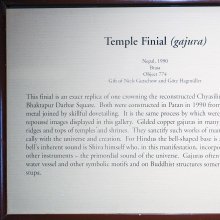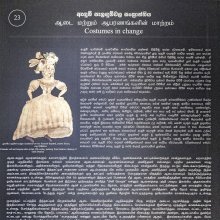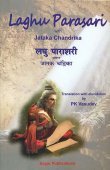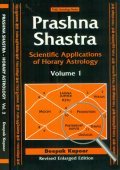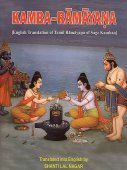Inherent: 1 definition
Introduction:
Inherent means something in Hinduism, Sanskrit. If you want to know the exact meaning, history, etymology or English translation of this term then check out the descriptions on this page. Add your comment or reference to a book if you want to contribute to this summary article.
Images (photo gallery)
In Hinduism
Yoga (school of philosophy)
Source: ORA: Amanaska (king of all yogas): A Critical Edition and Annotated Translation by Jason BirchInherent (properties) are denoted by the Sanskrit term Svaka, according to the Amanaska Yoga treatise dealing with meditation, absorption, yogic powers and liberation.—Accordingly, as Īśvara says to Vāmadeva: “[...] [Now], I shall define the nature of that highest, mind-free absorption which arises for those devoted to constant practice. [...] Just as the salty taste intrinsically inherent (svaka) [in salt,] is effortlessly obtained from a salty substance, so gnosis of Brahma [in the form of] cessation [which is intrinsically inherent in the mind] is effortlessly [obtained] from the mind. [...]”.

Yoga is originally considered a branch of Hindu philosophy (astika), but both ancient and modern Yoga combine the physical, mental and spiritual. Yoga teaches various physical techniques also known as āsanas (postures), used for various purposes (eg., meditation, contemplation, relaxation).
See also (Relevant definitions)
Query error!
Full-text (+485): Svabhavika, Svabhava, Asamavayin, Svarasika, Vyapaka, Rupatattva, Avinabhava, Atmashakti, Aveshika, Sambandhin, Vyapya, Vyasta, Sthanamahatmya, Dharmatva, Sahaja, Antarastha, Sattvastha, Samavayikarana, Antarbhava, Prakritistha.
Relevant text
Search found 324 books and stories containing Inherent, Inherents; (plurals include: Inherents, Inherentses). You can also click to the full overview containing English textual excerpts. Below are direct links for the most relevant articles:
Tattvasangraha [with commentary] (by Ganganatha Jha)
Verse 857-858 < [Chapter 15 - Examination of Samavāya (‘subsistence’)]
Verse 2812-2813 < [Chapter 25 - Examination of the Doctrine of ‘Self-sufficient Validity’]
Verse 404-405 < [Chapter 8 - Examination of the Doctrine of the Permanence of Things]
Nyaya-Vaisheshika (critical and historical study) (by Aruna Rani)
Classification of Causes < [Chapter 6 - Theory of Causation]
Anyathasiddha (Unnecessary Antecedent) < [Chapter 6 - Theory of Causation]
The nature of “Dik” < [Chapter 5 - Nature of the physical world]
Nyaya-Vaisheshika categories (Study) (by Diptimani Goswami)
Different types of Causes (kāraṇa) < [Chapter 8 - The Theory of Causation]
The Nature of Substance (Dravya) < [Chapter 3 - Dravya (Substance)]
Karma or Action (Introduction) < [Chapter 4 - Quality and Action]
Tattvartha Sutra (with commentary) (by Vijay K. Jain)
Verse 2.1 - Distinctive characteristics of the soul (jīva) < [Chapter 2 - Category of the Living]
Verse 2.7 - Three kinds of pāriṇāmika-bhāva < [Chapter 2 - Category of the Living]
Verse 2.2 - Various kinds of disposition (bhāva) < [Chapter 2 - Category of the Living]
Brahma Sutras (Shankaracharya) (by George Thibaut)
II, 3, 3 < [Second Adhyāya, Third Pāda]
II, 2, 11 < [Second Adhyāya, Second Pāda]
II, 3, 6 < [Second Adhyāya, Third Pāda]
The concept of Mind in the Major Upanishads (by Gisha K. Narayanan)
5. The Concept of Mind in Pūrvamīmāṃsa < [Chapter 3 - The concept of Mind in the Darśanas]
6. The Concept of Mind in the Muṇḍakopaniṣad < [Chapter 4 - The concept of Mind in the Major Upaniṣads]
Related products
